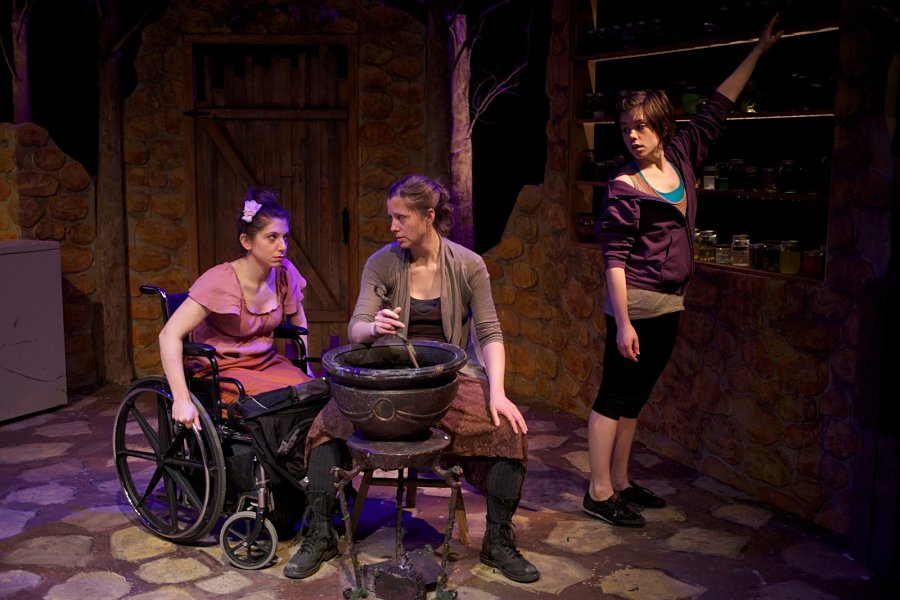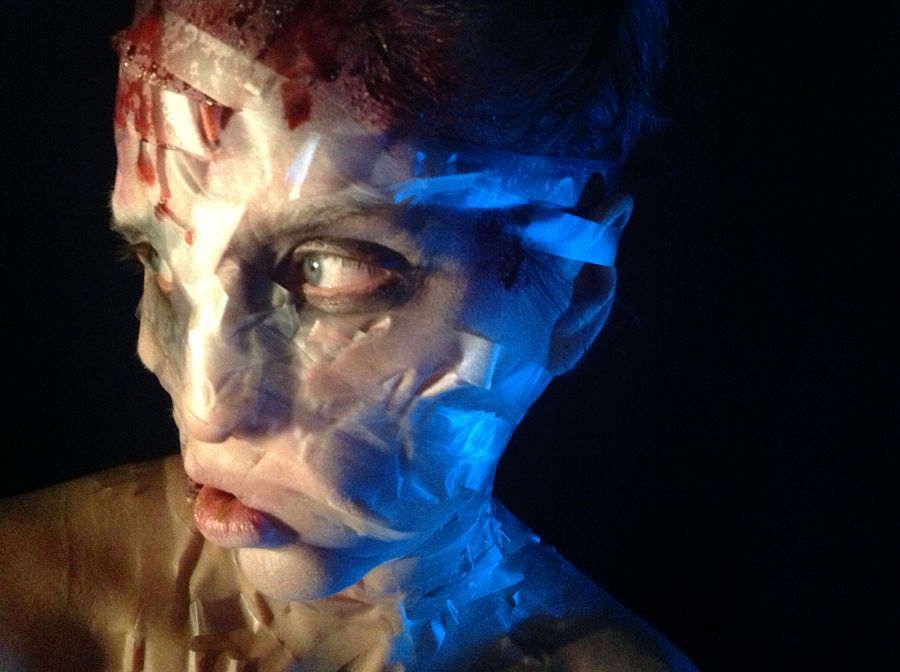Earlier this month, the Chicago theatre community said a difficult goodbye to Erin Elizabeth Myers. A passionate actor with a gorgeous voice and incisive sense of humor, Erin lost her life to cancer at the young age of 41.
An opera-trained singer with an MFA in Acting from Kent State, Erin was best known for her recent work with the Chicago Mammals (in particular her role as Victor Frankenstein in All Girl Frankenstein) and with the Hypocrites (most notably in Sean Graney’s 12-hour cycle All Our Tragic, for which Erin also co-arranged and performed the live musical track). She had a compelling presence and an ease onstage, which belied the fact that offstage she was one of the hardest-working people you could ever meet.

Personally, I had the privilege of working with Erin several times, including the premiere production of my play Brewed, in which she originated the role of Paulette. To say that this was a gift would be a drastic understatement. Erin was a spark in the room. She made brilliant choices that found themselves committed to the permanent script; she had a way in rehearsal of looking up with this mischievous smirk and saying, “I’d like to try something.” Brimming with curiosity and never satisfied with the easy answer, she would ask questions that needed to be asked—of me, of her character, and of the play.
“Motherfucker” is a word I will forever associate with Erin. (As in: Erin Myers was a bad ___; was courageous as a ___; will be missed like a ___.) “Motherfucker” is also the first line in Brewed, spoken by Paulette. It’s a word Erin could say about as perfectly as anyone. She’d elongate the M, and use the growl in the R’s to her advantage more so than the punch behind the K.
Words were her playthings and her tools; she knew how to make every consonant count, analyzing language like a scientist. A playwright—any playwright—is truly lucky to work with an actor as insightful, sportive, and deadly funny as Erin Myers even once in his or her entire career. To have such intelligent eyes on your text is both a terror and a thrill.
But what set Erin apart from any number of people who come and go from our lives as we bounce from play to play is that Erin earnestly, fiercely invested in the people around her. Erin didn’t make friends; she won allies. With Erin, dialogue always meant something. She relished the literary, the nerdy, the strange. As we worked on projects together, I can recall many long conversations over after-show drinks, conversations that never even flirted with small talk. Erin wanted to talk about art, about dreams, about family, about books, about the universe. She wanted to talk about changing minds, especially when it came to gender in theatre and opportunities for women.

It’s a flaw in my own character that I have a terrible memory for moments, so while I wish I could quote every wise or hilarious thing Erin ever said to me during these conversations, I sadly cannot. What I do possess, however, is a powerful memory for emotions. Erin had a calming effect on me. She made me feel cared for and heard, but she would also challenge my thinking. And I remember the immensity of the feeling I had after one such conversation in which we discussed our respective self-esteems, self-doubts and failures, among other things. I remember feeling: This must be what it’s like to have a sister.
When Erin died, much was written about her in our various online spheres. There was an outpouring of love, and grief, and admiration, and love, and love—people sharing memories of doing shows with her, taking classes alongside her, and seeing her onstage. Something that struck me as I read these tributes was how often they included reference to spirited, candid, intensely personal conversations like those Erin and I shared during our years working together. So many had that experience with her and that memory of her, and that’s a testament to how giving she was of herself, the time and attention she would dedicate, and how genuinely curious she was about people.
Erin’s passing is more than the loss of a talented performer and wonderful human being. To lose Erin Myers is to lose one of the great minds any theatremaker could ever hope to share a rehearsal room with. Losing Erin so soon, and so quickly, feels to be not only a tragedy but a profound injustice, most of all to Erin herself and to her amazing husband, Rob McLean. To see a woman who lived so fully, and a couple who brought each other such happiness, suffer in this way is enough to rattle the soul. A disease like cancer doesn’t care about things like fairness and will make no exceptions for how lovely and skilled and vital and honest you are—and yet a feeling pervades that Erin’s untimely death is an outrage, adding up to more than the loss of an artist, thinker, dreamer, wife, daughter, sibling and friend. While her absence is and will be most acutely felt by those who knew and loved her, Erin’s absence is more broadly a loss for the city of Chicago, and a loss for the form.
May we all remember Erin properly by challenging ourselves in our friendships and in our work. Let us make the art Erin would have wanted to see. Or better: Let us make the art Erin would have wanted to make with us.
A gifted writer as well, Erin Myers documented her diagnosis, treatment and the final months of her battle with cancer in a voice of wit, grace and brutal honesty. You can read her story on her blog, The View From the 21st Floor.


